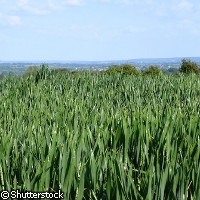New biorefinery project gets underway
Work has begun on a new EU-funded project to dramatically improve the performance of Europe's biorefineries. Dubbed EUROBIOREF ('European multilevel integrated biorefinery design for sustainable biomass processing'), the project aims to improve cost efficiency by 30%, cut energy use by 30% and reduce feedstock consumption by 10%. The 4-year project has a total budget of EUR 37 million, EUR 23 million of which comes from the EU's Seventh Framework Programme (FP7). Biorefinery processes must be improved if the EU is to achieve its goal of creating a bio-based economy. However, most initiatives in this area focus on just a small number of raw materials and technologies. The EUROBIOREF project aims to overcome this fragmentation in the biofuels sector by promoting more networking, coordination and cooperation between different groups. To do this, it has put together a project consortium that covers the whole biomass production chain, including researchers, companies in the (bio)chemical industry and European organisations. Together, the partners will develop an integrated biorefinery concept covering a wide range of feedstocks and different processes (chemical, biochemical and thermochemical). This integrated system will result in the production of a variety of products, ranging from chemicals, polymers and materials to high-energy aviation fuels. The project partners are taking a flexible, modular approach to the new system; this will allow them to easily adapt the system so that it can be used in large and small plants in different locations in Europe. They hope that by improving the efficiency of the reaction processes, making the system more flexible and reducing production time and logistics, they will be able to improve cost efficiency by up to 30%. In addition, they intend to reduce the amount of energy used in the process by 30% and cut feedstock consumption by 10%. Finally, the plants should produce zero waste. Sustainability is at the heart of the project; the team will carry out environmental life cycle assessments of the integrated biorefinery. The system's social sustainability will be judged on the basis of UNEP (United Nations Environment Programme) guidelines for the social life cycle assessment of products. 'This programme is an excellent opportunity to fill the gap between agriculture and chemical industry. It integrates the whole biomass chain into a commercial viable and adaptable approach, allowing a sustainable bio-economy in Europe,' commented project coordinator Professor Franck Dumeignil of the Catalysis and Solid State Chemistry Unit (UCCS) at the University of Lille in France, adding that the project would help Europe to compete in this area. He concluded: 'Further, it constitutes also an occasion for creating fruitful and fair partnerships between Europe and tropical countries in this high-tech domain. The concept will promote a sustainable development of agriculture also in these countries.' The project partners come from 14 countries, namely Belgium, Bulgaria, Denmark, France, Germany, Greece, Italy, Madagascar, Norway, Poland, Portugal, Sweden, Switzerland and the UK.



